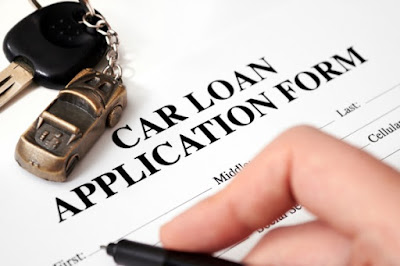Autoloanscalculationtips - Get the best credit deal before you buy an auto car is very important thing. Be sure to get the best credit deal. This is as important as getting the best price on the car. By shopping around for credit first, you can find the best deal for you without your mind being distracted by that new set of wheels.
Beware of getting a car lease when you really wanted to get a loan. With a lease you rent the car for an agreed period of time, but do not have a right or option to purchase the car. At the end of the period, the lease is terminated and the car sold. You could make an offer for the car, but you will usually need to come up with a large sum of money to buy it – and the credit provider does not have to accept your offer. So, if you want to own the car, do not get a lease.
Check out your loan options before you go shopping for your car. Many credit providers will give you in principle approval for a loan before you find your car, so that you know exactly how much you’ve got to spend and you’ll only have one high-pressure decision to make at the car dealership.
Before you get your loan, budget for the full costs of owning a car. There are annual fees for registration and insurance. You may also choose to join a motoring organisation for roadside assistance. On top of that there are ongoing costs like petrol, repairs and maintenance – even road tolls.
You might decide to get third-party property insurance or full comprehensive insurance for your car. Third-party property insurance covers you for damage to other people’s vehicles or property that is not covered by your compulsory comprehensive third party (CTP) insurance. Full comprehensive insurance also covers you for damage to your own car.
While insurance can be expensive, think how much not having it could cost you later if you have an accident. But make sure you shop around for the best deal – it is often cheaper to arrange your own insurance, rather than going through the car dealership. Be aware that if your car loan is secured by a
mortgage over your car, you will usually need to get comprehensive insurance for your car.
Be careful of loan protection insurance sold as an add-on when you get the loan. With this type of coverage, the insurance provider pays or contributes to your loan repayments if you are unable to work due to injury, sickness or involuntary unemployment. In the event of your death, life cover will repay your outstanding loan balance. This type of insurance is usually poor value for the cost, so shop around.
Some car dealers also offer gap cover (or shortfall insurance). If your car is stolen, written off or damaged beyond repair before you have paid off your car loan, this insurance is designed to cover the ‘gap’ between the market or agreed value that your comprehensive insurer pays and the amount needed
to pay out the remainder of your loan (up to a specified limit), plus some additional costs. Think carefully about whether you need this additional coverage and make sure you shop around.
You may also be offered an extended warranty (also called mechanical breakdown cover). This is really extra insurance, to cover the costs of unexpected mechanical repairs, parts and labour (with the exclusion of normal wear and tear). But before buying an extended warranty, make sure it is really worth the money. Does the extended warranty offer more protection than the warranty that comes with the car? When does the extended warranty start? Are there any important restrictions or conditions? Check that the benefits are worth the extra money and that the extended warranty does not simply repeat items covered under the warranty that comes with the car.
You do not have to take up any of these extra options if you don’t want to, and car dealers must not mislead or deceive you about the real benefits of additional insurance coverage or your need for it. Always check the terms and conditions of any additional coverage, as they may vary from those included in your comprehensive insurance coverage. Take your time to work out what you really need and don’t let a pushy salesperson pressure you into making an on-the-spot decision.
Do not sign a business purpose declaration unless you are really using the car for business and are eligible to claim your payments as a valid business expense for taxation purposes.
By signing a business purpose declaration, you may lose valuable rights under the credit law










0 comments:
Post a Comment